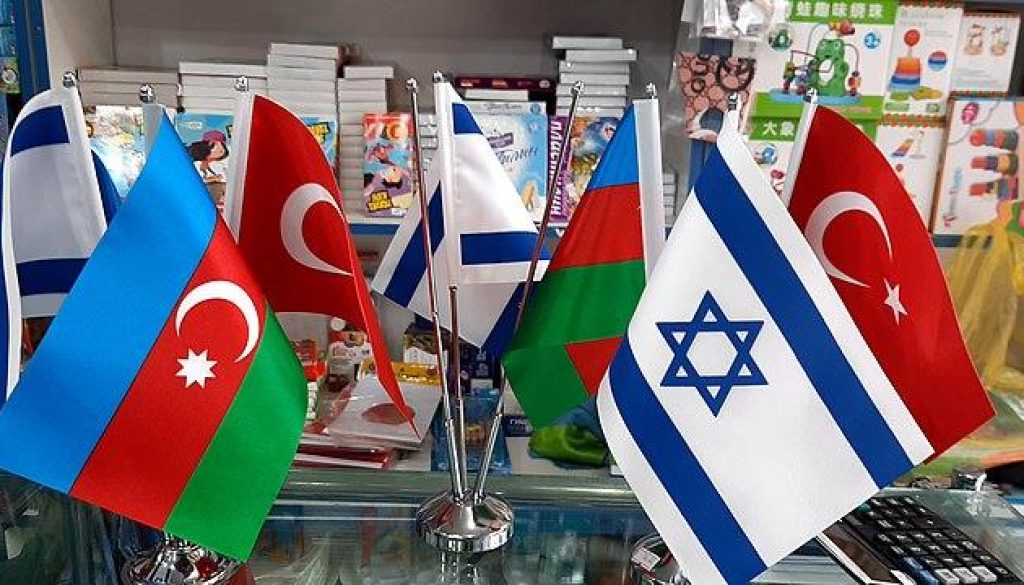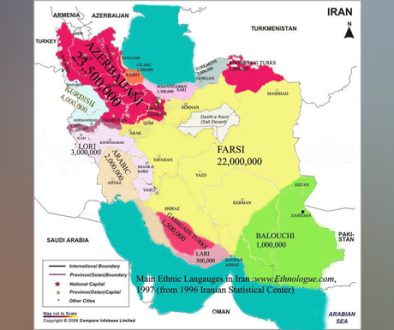Azerbaijan-Israel Ties Strengthen with New Ambassador, Impacts on Iran and Armenia
Iran and Azerbaijan have a complex relationship, with historical, cultural, and economic ties connecting the two countries. However, recent tensions have arisen due to Azerbaijan’s close relationship with Israel, which Iran views as an enemy state. Iran has also accused Azerbaijan of allowing Israel to use its territory to spy on its nuclear program.
This latest move by Azerbaijan to appoint an ambassador to Israel will likely strain its relationship with Iran further. The Islamic Republic has long been a supporter of Armenia, Azerbaijan’s neighbor to the west, in its dispute with Azerbaijan over the Nagorno-Karabakh region.
The conflict over Nagorno-Karabakh, which began in the 1990s, has been a source of tension between Armenia and Azerbaijan for decades. The region, which is internationally recognized as part of Azerbaijan, has been occupied by Armenian forces since a war in the early 1990s.
In 2020, the long-standing conflict reignited, leading to a six-week war that resulted in Azerbaijan regaining control of the region. The war was seen as a major victory for Azerbaijan and a significant blow to Armenia.
The Nagorno-Karabakh conflict has complicated Iran’s relationship with Armenia. While Iran officially supports the territorial integrity of Azerbaijan, it has been accused of supporting Armenia during the conflict.
As Azerbaijan strengthens its relationship with Israel, Iran may look to improve its ties with Armenia to counterbalance Azerbaijan’s actions. This could have significant implications for the region, as Azerbaijan plays crucial regional security and stability roles.
Meanwhile, Iran’s past actions in supporting militant groups have contributed to instability and heightened tensions in the Middle East, and the appointment of an ambassador to Israel could have significant implications for the region. As these relationships continue to develop, monitoring their impact on the wider region will be important.
It is possible that Iran could increase its anti-Azerbaijan activities, particularly if it feels threatened by Azerbaijan’s strengthening relationship with Israel. One potential action Iran could take is to increase support for groups like the Hosseiniun militia in Azerbaijan, which has been accused of carrying out attacks on Azerbaijani security forces in the past.
However, such actions would likely be met with strong opposition from Azerbaijan and could lead to further destabilization in the region. It is in the interest of all countries in the region to work towards greater stability and cooperation rather than engaging in actions that could potentially lead to further conflict and instability.
Overall, Azerbaijan’s appointment of an ambassador to Israel is a significant move that could signal closer ties between the two countries. However, it will be also likely impact Azerbaijan’s relationship with Iran and Armenia. As the situation continues to develop, it will be important to watch how these relationships evolve and how they may affect the wider region.
The United States’ Potential Role in Strengthening Azerbaijan-Israel Ties and Countering Iran’s Ambitions in the Region
In light of Azerbaijan’s recent appointment of an ambassador to Israel, it is important to consider how the United States may respond to this development. The US has traditionally been a strong ally of Azerbaijan and Israel and has also been a vocal critic of Iran’s aggressive behavior in the region.
Given this context, it is reasonable to expect that the US will support closer ties between Azerbaijan and Israel to counter Iran’s ambitions. The US has already shown its support for Azerbaijan in the recent Nagorno-Karabakh conflict, providing diplomatic and humanitarian assistance.
However, it is important to note that any further US involvement in this matter will likely be met with resistance from Iran, which views the US as a hostile actor in the region. As such, the US will need to tread carefully in its support for Azerbaijan and Israel, balancing its interests in the region with the potential for further escalation of tensions.
Overall, the US should continue supporting closer ties between Azerbaijan and Israel to counter Iran’s aggression and ambitions in the region. However, it must do so in a way that does not further exacerbate tensions or contribute to further instability in the region.
Impact on South Azerbaijani Minority in Iran: Potential for Advocacy and Autonomy or Further Repression and Persecution?
The appointment of an Azerbaijani ambassador to Israel and the potential strengthening of ties between the two countries may also have implications for the South Azerbaijani people in northwest Iran.
The South Azerbaijani people are an ethnic Azerbaijani minority group in Iran, with an estimated population of around 30 million. They have long faced discrimination and marginalization from the Iranian government, which views them as threatening Iranian national unity and security.
As Azerbaijan and Israel move closer together, the South Azerbaijani people may see this as an opportunity to advocate for greater rights and autonomy within Iran. They may look to Azerbaijan as a potential ally in this endeavor, given their shared ethnic and cultural heritage.
However, any such move is likely to be met with significant resistance from the Iranian government, which views any independence-seeking movement as a threat to its territorial integrity and national security.
Overall, the impact of Azerbaijan’s appointment of an ambassador to Israel on the South Azerbaijani people is uncertain. It is possible that it could provide an opportunity for greater advocacy and autonomy or independence, but it could also lead to further repression and persecution from the Iranian government.
[Photo by Aykhan Zayedzadeh, via Wikimedia Commons]
*Babek Chalabi is a South Azerbaijani activist based in Washington DC; Chalabi also is the founder of ArazNews.org. Babek tweets at @BabekChelebi. The views and opinions expressed in this article are those of the author.



